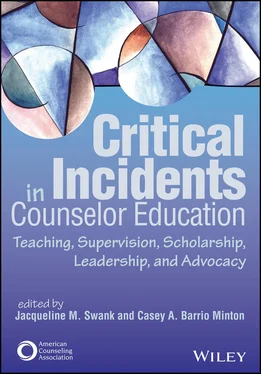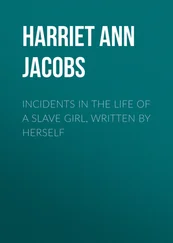1 ...6 7 8 10 11 12 ...28 Professor O was confused because the discussion had been rather lively in previous class meetings. When it became clear nobody was going to volunteer, he asked students what was keeping them from sharing. After another moment of silence with no real response, Professor O blurted out, “Did anybody read?” He noticed guilty looks on students’ faces as some reluctantly shook their heads. He then asked, “So what’s going on? Why aren’t we reading?” Finally, a more vocal student jumped in and explained, “We just finished a big paper that was due yesterday for another class, and we have an exam in our class tomorrow. We have just been really busy this week.” Although the student was not speaking on behalf of everyone, there appeared to be somewhat of a consensus among the students.
Professor O’s genuine internal reaction was to be a bit offended. He had spent time planning his class, and he felt disappointed that students were not invested in his class. Professor O was careful not to shame the students. Instead, he tried to empathize with them: “You are overwhelmed this week. Sometimes in graduate school things are piled on all at once and it is hard to get to everything. Reading can be hard when it’s not directly tied to a grade or assignment.” He spent some time talking about how reading ahead is imperative to having fruitful class discussions. Professor O eventually moved on to the content of the class. Students were engaged in the discussion throughout the rest of the class when prompted or when asked to work in small groups.
Case Analysis and Discussion
Many instructors assign readings to help students prepare for class so they can use class time to focus on discussion and activities without spending time reviewing concepts students can easily read. Although it is not uncommon to encounter students who are unprepared, it can be frustrating. Instructors know how and why the material is important, and they can see how it plays into the bigger picture of learning outcomes. Instructors get excited to hear students’ perspectives, and it can take the wind out of their sails to be met with blank stares and silence. Silence can cause instructors to have to think on their feet, rearranging plans to account for students’ lack of preparation. This is a skill all instructors develop throughout their careers.
There are some important considerations in this case. It could be helpful to consider students’ learning preferences. Some students may feel intimidated to speak up in front of the whole class, even if the class is small. Students may do better in pairs or small groups, where the focus is not solely on them. Although it might be nice to have a full class discussion, not all students are initially comfortable participating in this way. Another consideration is that some students learn better through experiences and discussions rather than reading. They may not get as much out of reading because there is nothing to apply it to in the moment. The relevance of topics at hand may become clearer once a discussion begins, an activity is done, or experiences are shared that can better contextualize the meaning of the concepts learned (Kolb, 2015). Finally, some students may not have actually completed the reading. Many professionals cannot honestly say that they have completed all assigned readings. Sometimes students simply do not want to do it, and so they do not. Other times they may feel overwhelmed; readings get cut from the to-do list in favor of something of higher priority. Sometimes students forget about the readings. Regardless, students are coming to class with no introduction to the topic, and they may be secretly hoping other students will contribute and save the class.
Regardless of which of the aforementioned issues applies, the reality is that the instructor is faced with a room full of students who are not prepared. Educators should question realistic expectations when it comes to classroom preparation. The ACA Code of Ethics (American Counseling Association [ACA], 2014) states that counselor educators should be “skilled in applying . . . knowledge; and make students and supervisees aware of their responsibilities” as well as serve as role models for the profession (Standard F.7.a.). Instructors provide a syllabus that clearly outlines expectations for the course, but it can be tricky to address students when expectations are not being met. As counselors, students will be faced with clients or students who are not following recommendations or putting in work outside of session. It would not be appropriate for them to scold or punish their clients for not meeting expectations. However, counselor educators are ethically responsible for modeling counselor characteristics while still evaluating student progress and assessing for competency (ACA, 2014). Instructors who gently remind students about the importance of participating and explore their reasons for not doing the reading can model professionalism while holding students accountable and working toward a solution, just as they might with a reluctant or resistant client.
What appears to be a lack of student preparation can also be misleading. An important part of experiential learning is reviewing readings assigned in class (West et al., 2013). West et al. (2013) suggested spending 15 to 20 minutes at the beginning of each class going over important topics and referring to specifics in the readings. This can help students understand the most important parts of a lesson prior to engaging in discussion and activities. West et al.’s approach is interesting because they posited that students who react to prompts in the ways described in the case above may not be unprepared. Rather, they may have read without knowing what they were looking for; thus, they were not able to retain key topics or concepts. This is students’ first exposure to the material, and they may also be taking other classes in which they are flooded with new information. Providing an overview of why assigned readings matter or what to look for may be key to helping students retain information in the long run.
It is also important to remember cultural considerations that may impact students’ preparation. Ng (2006) found that the three most common concerns for non-Western international counseling students were English proficiency, adjustment, and conflict with Western understanding and approaches. Students may not understand readings or questions because English is not their first language. They may be dealing with concerns around cultural adjustment. They may also be struggling to relate to Western conceptualizations of cases and solutions. Sharing conflicts or personal experiences with a group of strangers may also be inappropriate from a cultural standpoint. It is important to check and provide assistance as well as consider the unique perspectives of non-Western students in the context of class discussion (Ng, 2006).
When instructors consider cultural differences, it is important that they think about aspects of U.S. culture and history that may make international students and English language learners uncomfortable (Interiano & Lim, 2018). Historical inequalities and experiences of marginalization may cause students to feel uneasy asking or answering a question in class. In this same vein, dominant white American culture tends to strongly favor assimilation, encouraging people of color to abandon their culture of origin in favor of adopting dominant norms and values. Students may worry about their English not being good enough or their perspectives going against white American values. These concerns can lead to students being rejected by peers and faculty members. Instructors can combat this by viewing the material they are teaching through a multicultural lens. Incorporating multiple cultural perspectives into lessons and opening the door for conversations about culture may encourage students to share their views.
Читать дальше










